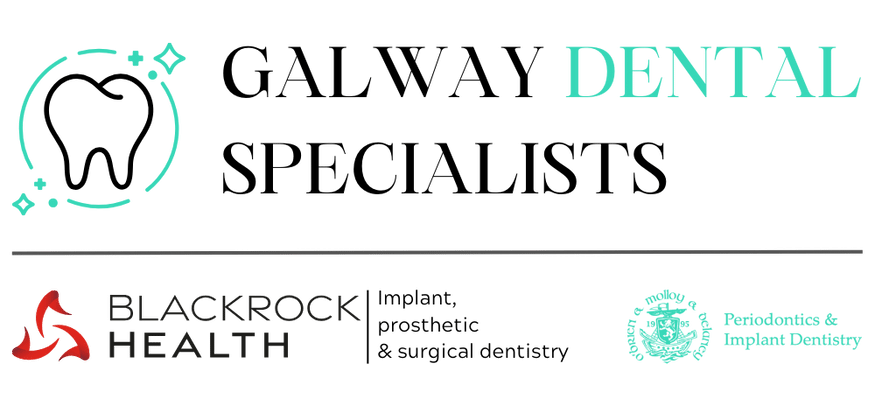Instructions for patients following Periodontal/implant surgery
Dr. Tiernan O’Brien B.A.B.Dent.Sc.M.S (Perio)
Dr. John Molloy B.A.B.Dent.Sc.M.S (Perio)
Dr. Paddy Delaney BDS., MFDS RCSEd, D.Ch.Dent (Perio)., Cert EFP
The hours after surgery:
- Try to rest, and limit your physical activity
- Don’t rinse your mouth, rinsing prolongs bleeding
- Don’t rub or push the area that’s just had surgery
- If you do experience bleeding, roll up clean gauze, a cloth handkerchief, or a wet tea bag and apply it to the site for 15 minutes with gentle pressure- Do not dab
- Drink plenty of fluids, but don’t use a straw
- Eat soft foods; avoid foods with seeds and nuts.
Cleaning your teeth:
It will be difficult to brush around the area for some days, your periodontist will probably advise you to avoid brushing the area for approximately 4-5 days. You should brush your other teeth as normal, taking care around the surgical site. For the first week, you will usually be advised to use mouthwash until you can begin brushing again. The mouthwash should be used twice a day, beginning the day after surgery. Usually, the mouthwash is used for 1 week only. Using it beyond this can stain the teeth.
Salty rinses/Corsodyl:
Don’t rinse on the day of your surgery, just let things dry up. Warm or lukewarm salty rinses can be very soothing from the 2nd day onwards. A teaspoon of salt can be dissolved in a cup of warm water and used 3-4 times daily to keep things clean.
Painkillers:
- 2 Nurofen (Ibuprofen) at 6-hour intervals is very useful, & also keeps swelling down. If the area is still uncomfortable, you can also take 1-2 Panadol (Paracetamol) in addition.
- You may be given a prescription for some painkillers, use as directed.
Antibiotics:
You may be given a prescription for some antibiotics. These are to be started on the day of surgery, and the whole course should be finished as directed (usually 1 week). Some tummy upset can be expected while taking antibiotics.
Bleeding, swelling and bruising:
Most patients encounter ether some bleeding in the hours after surgery. This can continue a little overnight. If it gets worse, roll up clean gauze, a cloth handkerchief, or a wet tea bag and apply it to the site for 15 minutes with gentle pressure- Do not dab.
Often, patients will develop swelling on the face or neck. This will get worse over the first 3-4 days and then resolve. Bruising takes 3-4 days to develop but can be quite noticeable on the face, neck or around the eyes. This will resolve after 7-10 days.
Temporary Denture:
You may be given a new temporary denture. This won’t be an ideal fit just after surgery, given that the skin will need to heal a little. You can use a small amount of denture adhesive to keep it in (e.g. Fixodent) Keep your denture very clean with a toothbrush and toothpaste and take it out at night to give your gums a chance to heal.
Stitches:
Most stitches are dissolving, but they will take some time to fully disappear. They can fall out early (even on the day of surgery), and there is no need to replace them unless the site is bleeding heavily. Often, the Periodontist will remove your stitches before they fully dissolve, to help give faster healing.

